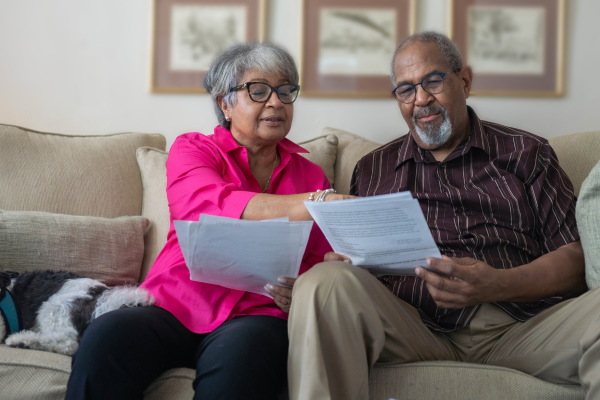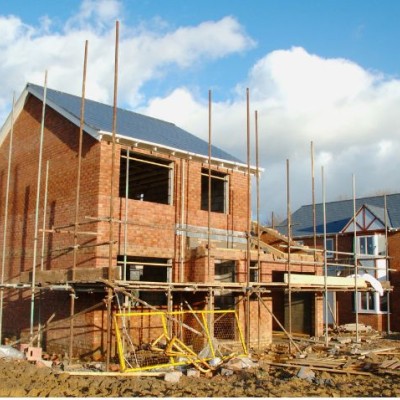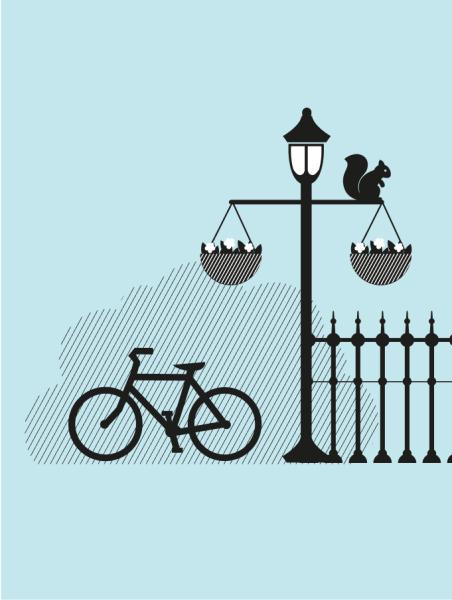Selling an inherited home: What you need to know about probate properties

If you have been left a property and you want or need to sell it, this can be tricky – certainly less straightforward than selling your own home.
Here are 10 things to know and do, to help make sure you don’t run into any problems.
- Take legal advice
You won’t be able to move forward with selling the property until probate has been granted and you must make sure that you do actually have the legal right to sell. So, consult with a conveyancer or a solicitor that handles estate planning, and if the property is leasehold, use a specialist, as this can be a more complicated transaction.

- Get hold of the title paperwork
You (or your legal adviser) can download a copy of the title register and request official copies of the deeds via the Land Registry website. You will need official copies to prove ownership.
- Get the initial sales legals completed as soon as possible
Sales transactions can easily be held up by the time it takes to make identity checks and for the vendor’s legal company to get all the paperwork together. With properties that have just been through probate, this can be drawn out further, particularly if there are multiple beneficiaries – e.g. siblings – as there can be a lot of ‘to-ing and fro-ing’. So, once you’ve decided you’re definitely going to sell, instruct your legal company before the property is marketed, don’t wait until you have a buyer.
- Make sure you have all the information your sales agent will need
Earlier this year, new ‘best practice’ industry standards around Material Information were brought in – that’s information about a property that could affect the decision to buy, such as council tax, parking, rights of way, restrictive covenants and flood risk. Any reputable agent should be including this information in property listings, so you must have it to hand before the property is marketed. If you have instructed a legal company, they can help you gather this.

- Choose a qualified agent to sell the property
As there is currently no requirement for agents to be qualified, trained or regulated, it’s important to use one that is a member of one of the industry’s self-regulating bodies, such as Propertymark. Membership requires agents to achieve minimum standards and adhere to a code of conduct, and also provides training and legal support.
When dealing with an inherited property, particularly one that may not be in the best condition, buyers will often have extra questions and concerns, and it can be invaluable to have a professional agent representing you and handling the marketing and sale on your behalf.
- If the property needs a lot of work, consider marketing as ‘offers over’
Although there are lots of buyers looking for a ‘project’, there aren’t many properties these days that need a full upgrade. So, if the property you’ve inherited hasn’t been updated for many years, it could be in high demand. Marketing at ‘offers over’ a certain price can help you realise a strong sales price, as it can attract more buyers, which will hopefully mean more offers.
- Is it worth carrying out upgrades yourself before marketing?
This is where an experienced agent that really understands the market can be very helpful. They’ll know what buyers are currently looking for and how much they’re willing to pay, depending on the condition of a property. So, if the property is a little outdated, take advice on whether it would be worth spending some time and money bringing it up to a better standard, or marketing as it is.

- Clear out the property
While you may feel you can tackle this yourself, clearing out an inherited home – particularly if the deceased person had lived there for many years – can be a huge project. Not only is it time-consuming, but skips can be expensive and inconvenience neighbours. So it’s often quickest and easiest to use a specialist house clearance company and then have a professional deep clean so the property is a blank slate for a buyer.
- Trust your agent to find the right buyer
If the property belonged to a close relative, or was perhaps your childhood home, selling it could be quite emotional for you. In this case, it’s usually best to take yourself out of the equation and simply find a good agent that you can be confident will carry out viewings professionally and find the right buyer.
- Be aware of the tax implications
Although capital gains tax doesn’t apply when a property is passed on to a beneficiary, you may have to pay capital gains tax on disposal if it’s gone up in value since the person died or since it was valued for inheritance tax purposes. So it’s well worth speaking to a property tax specialist to find out what tax may be due.
If you have recently inherited a property that you are thinking of selling, we’re here to help. Just get in touch with your local branch and one of our sales team will be happy to arrange an appointment.
Looking for advice?
If you're looking to let or sell your property, we can help. Get in touch with your local branch or book in for a property valuation.

Contact Us
Got a question, general enquiry or something else?
You may also like
Since we started in 1818 we have grown and joined one of the UK’s largest property groups, we can save you time and money by offering a range of services and expertise under one roof.





